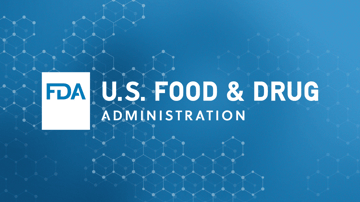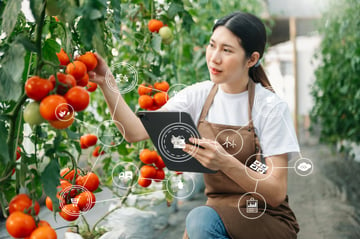According to the Centers for Disease Control and Prevention, one in six people gets sick from foodborne diseases each year. In 2011, the FDA enacted the Food Safety Modernization Act (FSMA) to respond to changes in the global food system and a more comprehensive understanding of foodborne illness and its consequences – including the importance of and responsibility for preventing it.
The FSMA has continued to impact food safety within the U.S., most notably aiming to shift the focus from responding to foodborne illnesses to actively preventing them. This shifting regulatory environment surrounding food quality and traceability – coupled with consumers being more mindful than ever of product transparency – has forced companies to assess their business models and supply chain operations, seeking options that establish greater transparency and resiliency and ensure industry compliance.
Investing in food inspection software can enable companies to be proactive in their approach to food product traceability and supply chain visibility, ultimately ensuring consumer safety. However, a food inspection software can be a considerable investment in time, money, and resources. It’s helpful for companies to know where to start when considering the best decision for their company.
As you contemplate the costs and benefits associated with investing in a food inspection software, here are five key considerations when selecting the right platform for you:
- Supply chain visibility. Your supply chain will become increasingly intricate and complex as your company grows. What once may have been an easily traceable, easily monitored web now could involve multiple vendors. From manufacturing to packaging to storefront, there are various touchpoints to consider. It’s essential to identify a software that provides you with the ability to quickly and conveniently verify the safety and quality of your food throughout the supply chain.
- Documentation control. With many documents to monitor and stay on top of, it’s essential to have a central location to store and readily access records, as FSMA Preventive Controls requires. If the FDA comes knocking at your door, you’ll want to be able to compile and export documents quickly. From supplier audits and assessments to FDA-required documentation, a food inspection software with a centralized Cloud location for storage removes the undue stress of manually safeguarding and organizing documentation for compliance requirements.
- Real-time data and reporting. Recalls and withdrawals are inevitable, so when the time comes – not if – to remove a product from a shelf, it’s critical to have systems and solutions in place that can provide end-to-end visibility in the supply chain. A food inspection software that can provide real-time data of a product’s exact location or lot code will enable your company to respond quickly and efficiently, cutting operational costs and ensuring consumer safety.
- Growth capabilities. Investing in a food inspection software might be a significant lift for your company. However, when selecting the right platform for you, one of the primary considerations is, “Will this system grow with us?” Every company and business is unique, and you need to find a solution that fits your needs. As your company expands, technological solutions can significantly aid in growth and expansion, filling current system gaps and streamlining operational processes and procedures. Having the right system in place – one that can grow and adapt as your company does – is key.
- Training and support. An effective system can quickly become ineffective without proper training or implementation. Selecting a food inspection software that is backed by a company committed to onboarding and performance is crucial to operational success. Having access to ongoing support for training, quality incidents, or traceability events should be vital in your decision-making process.
As product safety and supply chain visibility continues to be of utmost importance in the food industry, companies should consider investing in food inspection software to help them remain ahead of the game and continue to meet industry regulations.
At FoodLogiQ, we help food companies efficiently manage their supply chain, capture real-time data needed for a transparent and FSMA-compliant supply chain, and stitch together critical tracking events quickly identify and address food safety issues.
Other posts you might be interested in
View All Posts
Traceability
6 min read
| January 29, 2021
Gearing up for Traceability 2.0 with FSMA
Read More
Industry Regulations
4 min read
| October 27, 2022
Key Considerations for Creating a FSMA Compliance Checklist
Read More
6 min read
| March 24, 2023

